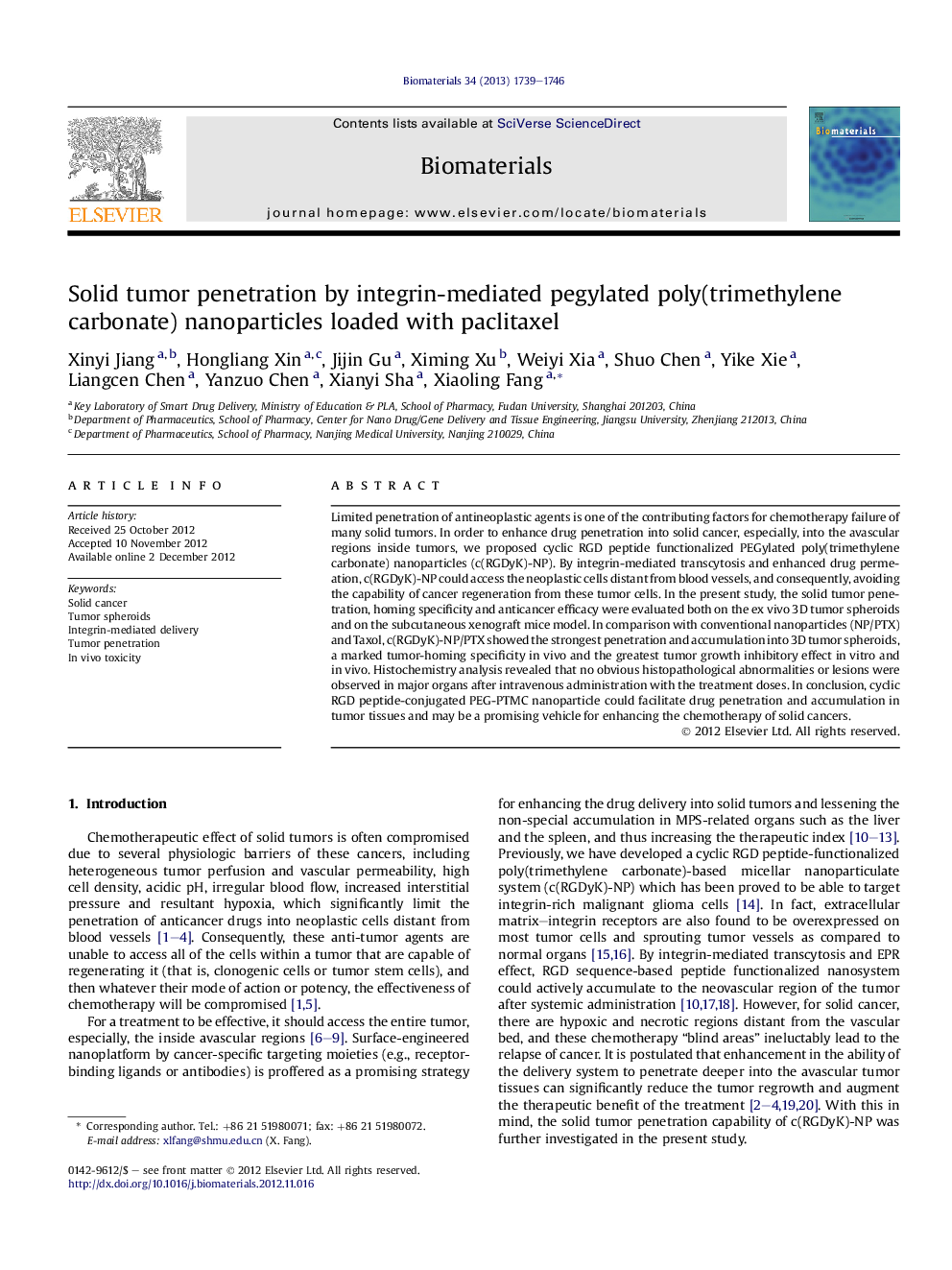| Article ID | Journal | Published Year | Pages | File Type |
|---|---|---|---|---|
| 10229144 | Biomaterials | 2013 | 8 Pages |
Abstract
Limited penetration of antineoplastic agents is one of the contributing factors for chemotherapy failure of many solid tumors. In order to enhance drug penetration into solid cancer, especially, into the avascular regions inside tumors, we proposed cyclic RGD peptide functionalized PEGylated poly(trimethylene carbonate) nanoparticles (c(RGDyK)-NP). By integrin-mediated transcytosis and enhanced drug permeation, c(RGDyK)-NP could access the neoplastic cells distant from blood vessels, and consequently, avoiding the capability of cancer regeneration from these tumor cells. In the present study, the solid tumor penetration, homing specificity and anticancer efficacy were evaluated both on the ex vivo 3D tumor spheroids and on the subcutaneous xenograft mice model. In comparison with conventional nanoparticles (NP/PTX) and Taxol, c(RGDyK)-NP/PTX showed the strongest penetration and accumulation into 3D tumor spheroids, a marked tumor-homing specificity in vivo and the greatest tumor growth inhibitory effect in vitro and in vivo. Histochemistry analysis revealed that no obvious histopathological abnormalities or lesions were observed in major organs after intravenous administration with the treatment doses. In conclusion, cyclic RGD peptide-conjugated PEG-PTMC nanoparticle could facilitate drug penetration and accumulation in tumor tissues and may be a promising vehicle for enhancing the chemotherapy of solid cancers.
Related Topics
Physical Sciences and Engineering
Chemical Engineering
Bioengineering
Authors
Xinyi Jiang, Hongliang Xin, Jijin Gu, Ximing Xu, Weiyi Xia, Shuo Chen, Yike Xie, Liangcen Chen, Yanzuo Chen, Xianyi Sha, Xiaoling Fang,
